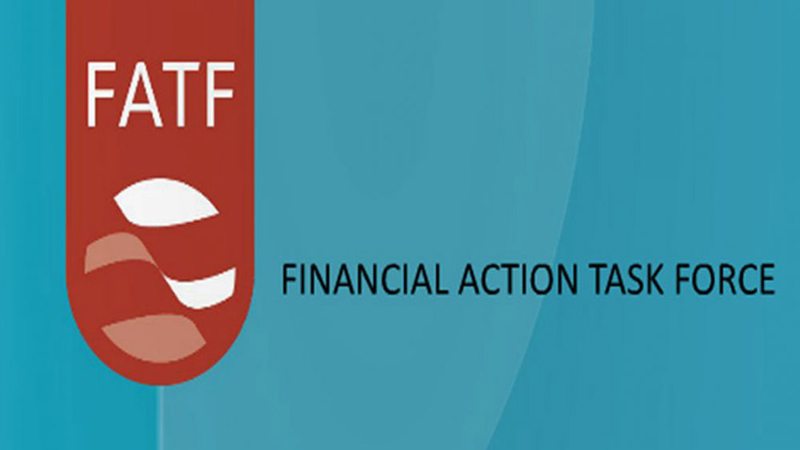FATF blues


Optics are the foremost visual representation of a state’s repute. But, unfortunately for Pakistan, its standing in the international community isn’t as remarkable as it used to be in the bygone days. Talks about deep relations with key allies such as China are nothing more than a rhetoric. International diplomacy doesn’t run on how well a state’s rapport is with others. In fact, it runs on meaningful business conjoined by realpolitik. The Chinese know that unless and until militancy is rooted out, Pakistan’s national security parameters would remain unstable. This is what the movers and shakers need to comprehend.
“Pakistan should present a comprehensive and well thought out plan to FATF secretariat encompassing legal and administrative reforms necessary to fully comply with FATF guidelines. Moreover, Pakistan should make dedicated efforts to implement the existing legal framework with respect to money laundering/counter-terrorist financing,” said Ali Sultan, the Vice President of the Research Society of International Law (RSIL), a prominent think tank. Moreover, he also believed that it’s a political move that was symbolic in nature. Though on diplomatic levels, the FATF secretariat was kept in the loop, perhaps there was a failure in making concerted efforts if the pattern is to be observed closely.
Former Pakistani High Commissioner to India Abdul Basit also echoed similar views on the FATF’s decision but was more open about its political importance. He had the following to state, “Pakistan has been doing all it can to prevent money laundering and terror financing. There is no country in the world which can claim a fool proof system with hundred percent results. Pakistan has plugged all the possible loopholes in its system. It is, however, unfortunate that some countries are using FATF against Pakistan with their own self-serving agendas.” He was also of the opinion that it is high time for certain countries to shun politics and work with sincerity of purpose to defeat terrorism. He further added that if FATF were serious to pursue its mandate effectively then it must eschew the temptation to browbeat countries for reasons extraneous to FATF mandate. He does have a point to some extent since hundred percent results aren’t guaranteed in such scenarios. Politics does get messy in cases where bilateral or multilateral ties come into play.
Though Ali Jehangir Siddiqui, Pakistan’s Ambassador to the United States, may have taken charge of his post owing to alleged nepotism and political connections, his recent interview with Bloomberg TV-a prominent American business channel- implies that he likely means serious business in fixing not only bilateral ties and promoting trade but also pushing for removal from the FATF’s grey list under a 15-month action plan that is to be met by September 2019.
As of now, uncertainty looms over the financial sector of the country at a time when the general elections are just around the corner and the economy remains unstable with credit rating being downgraded by Moody’s. While it’s true that the FATF was likely influenced by the United States to subdue Pakistan politically, certain factors cannot be denied or ignored.
Regardless of political manoeuvrings, the fact remains that the previous government hasn’t done any favours to the economy by adopting highly erroneous steps that resulted from an alleged tug of war between certain state institutions. Moreover, the failure to thoroughly curb extremism and allegedly keeping the much-hyped National Action Plan(NAP) dormant had been detrimental. Yes, some militant groups have been countered effectively such as the TTP and its splinter groups. But what about others like the ASWJ? Their inclusion in banned outfit list had negligible impact since they were freely carrying out their charitable and political causes through discreet means.
Furthermore, the timing wasn’t exactly ideal for sectarian militant leader Ahmed Ludhianvi’s assets being unfrozen and ban lifted on ASWJ’s activities the day before Pakistan was placed on the FATF’s grey list. No doubt, a negative message was sent out to the world.
On the other hand, people like Khadim Hussain Rizvi have become an existential threat to the state. He may be a significant religious character in Pakistan’s politics, but his role resembles that of an anarchist jester-like the Joker from the Batman series. The reason he’s being called the Joker? It’s because his ideology is purely anarchist–albeit on religious grounds– who has cult following among his admirers.
The state has already accumulated a massive debt that is hovering around $100bn with the bulk taken in the last regime’s tenure. Not mentioning the currency fluctuations in the open market and ill-conceived measures that led to hefty loans from international donor agencies. The inclusion in grey list could be an ominous sign of what’s next for Pakistan. Time is running out and there’s a lot need to be done. Hence, financial and diplomatic quarters need to chalk out a formidable strategy to prevent any grave economic or national security disaster that could affect the state’s long-term stability.
The writer is Diplomatic Correspondent, Daily Times. He can be reached at hassankhan440@gmail.com and tweets @mhassankhan06
Published in Daily Times, July 14th 2018.
Leave a Comment